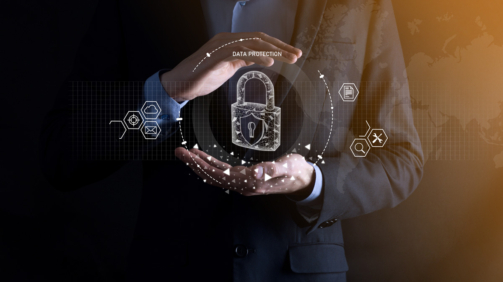Identity verification means sharing lots of personal data which carries a risk of data breaches or identity theft. Additionally, organizations must maintain the heavy burden of storing personal data securely and with compliance. A cryptographic revolution that enables identity verification with proof of identity, while keeping personal data secret.
This change improves privacy, drastically reduce the hassle of identification verification, and is fundamentally changing identity verification and how we build trust in this new digital era.
What are Zero-Knowledge Proofs?
At its core, a Zero-Knowledge Proof is a method that allows one party (the prover) to convince another party (the verifier) that a statement is true without revealing any additional information. Applied to identity verification, ZKPs enable individuals to prove eligibility or credentials without disclosing personal details such as name, date of birth, or address.
This subtle but powerful concept means that sensitive data remains private and secure while trustworthiness is still established. Unlike conventional methods, which rely on data sharing and manual checks, ZKPs embed privacy directly into the verification process.
Why ZKPs Matter in Identity Verification
The application of Zero-Knowledge Proofs in identity checks offers several vital benefits:
- Privacy by Design: Individuals prove necessary attributes without exposing underlying data.
- Security Against Fraud: The cryptographic nature of ZKPs makes falsification nearly impossible.
- Reduced Data Breach Risks: Minimal data sharing means fewer targets for hackers.
- Regulatory Compliance: Aligns well with data protection laws like GDPR by limiting personal data exposure.
Real-World Applications Transforming Identity Checks
Various sectors are beginning to leverage ZKPs to overhaul how identity verification is done:
Financial Services
Banks and fintech companies traditionally require detailed customer information for KYC (Know Your Customer) and AML (Anti-Money Laundering) compliance. With ZKPs, clients can prove they meet regulatory requirements such as being over a certain age or having sufficient credit without sharing full records.
Healthcare
Hospitals and insurers need to verify patient identity and insurance coverage securely. Zero-Knowledge Proofs enable this without exposing sensitive medical histories, reducing data privacy concerns.
Digital Platforms
Online services often require users to verify age or membership. ZKPs allow users to confirm eligibility, for example, proving they are over 18 without disclosing birthdate or identity details, improving user trust and safety.
Benefits for Users and Organizations
- Empowering Users: Control stays with the individual over what data to share and when.
- Streamlined Processes: Automated, cryptographically secure checks reduce delays and paperwork.
- Lower Compliance Costs: Organizations can reduce risks and expenses related to data storage and breach liabilities.
- Enhanced Trust: Transparency in how identity is verified builds stronger relationships between users and service providers.
Challenges and Considerations
While ZKPs offer immense promise, organizations should be mindful of:
- Technical Complexity: Implementing Zero-Knowledge Proofs requires specialized knowledge and infrastructure.
- Integration: Compatibility with existing identity and verification systems must be ensured.
- Regulatory Environment: Jurisdictions vary in their acceptance and interpretation of cryptographic proofs.
- User Education: Individuals and businesses need to understand how ZKPs work to build trust in the system.
The Road Ahead for Identity Verification
Zero-Knowledge Proofs are redefining identity verification, shifting from data-heavy methods to privacy-preserving protocols. As technology matures, we anticipate broader adoption in decentralized identity frameworks, enabling users to prove credentials securely across multiple services without repetitive data disclosure.
This approach aligns with a future where privacy is embedded into technology by default not as an afterthought. The promise of ZKPs extends beyond identity to potentially revolutionize compliance, access control, and secure digital interactions everywhere.
Conclusion
Zero-Knowledge Proofs launch a new era in identity verification, allowing people, organizations, and systems to be private, secure, and efficient. By enabling proof without exposure, ZKPs flatten exposure risk for individuals and organizations, fundamentally changing how trust is established in the digital economy.
With growing adoption by more and more organizations and sectors, when upgraded correctly, we can arrive at a world where identity checks are both secure and considerate of personal privacy. The article has been authored by Bahaa Abdul Hadi and has been published by the editorial board of Identity Herald. For more information, please visit www.identityherald.com.




